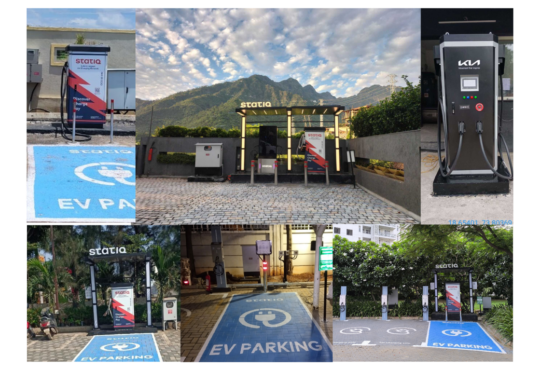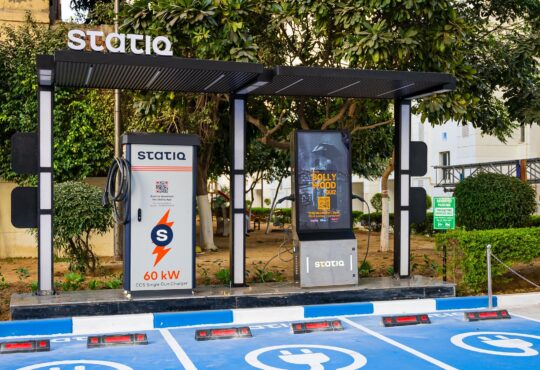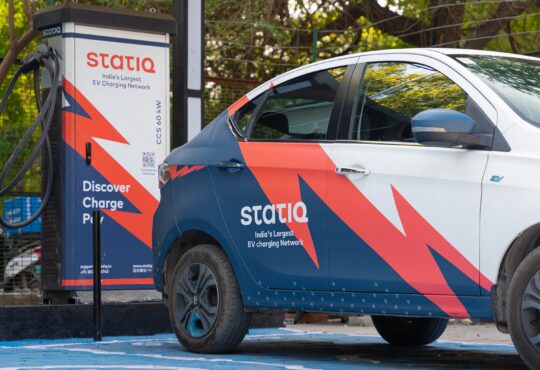
Why are electric vehicles the Future of the Automotive Industry?
Electric vehicles have been a topic of discussion for years, but only in recent years have they started to gain traction and make a real impact on the automotive industry. EVs produce zero tailpipe emissions and help reduce air pollution, making them an environmentally friendly option. With global concerns about climate change, EVs are becoming more and more appealing to consumers who want to reduce their carbon footprint. Moreover, the number of electric vehicle charging stations is also increasing with the country’s demand for EV charging infrastructure. The trend toward EVs will only continue in the future, and it’s important to understand why they represent the future of the automotive industry. In this blog, we will try to understand various factors that make EVs the future of the automobile industry.
Six Reasons Why EVs are the future of mobility
Electric vehicles (EVs) are changing the face of the automotive industry. With advancements in battery technology and increasing environmental concerns, EVs are quickly becoming the preferred mode of transportation. Here are six reasons why EVs are the future of the automotive industry.
1. Environment Friendly
The internal combustion engine (ICE) has been the dominant technology in the automotive industry for over a century but it significantly impacts the environment. Burning fossil fuels releases harmful air pollutants, contributing to air pollution and global warming.
On the other hand, EVs are powered by electricity, which can be generated from renewable sources like wind and solar power. This means that EVs have a much lower carbon footprint than ICE vehicles. With growing concerns over the impacts of climate change, it’s clear that EVs are an important part of the solution.
2. Strong Charging Infrastructure
Another important factor driving EV growth is the charging infrastructure’s availability. In the early days of EVs, a major concern was the lack of electric vehicle charging stations, which made it difficult for people to use them for long-distance travel. However, this is no longer an issue as charging infrastructure has rapidly improved in recent years.
Statiq, a leading EV charging station provider is working towards strengthening sustainable transportation in India. Today, thousands of charging stations are located all over India at malls, hotels, restaurants, and public places, and the number will only continue to grow in the future. This makes it easier for people to adopt electric vehicles, which is why they’re becoming increasingly popular.
3. Smooth Performance
Another key benefit of EVs is their improved performance compared to ICE vehicles. EVs have instant torque, which means they can accelerate quickly and smoothly. They also tend to be quieter and smoother to drive, making for a more comfortable driving experience.
In addition, the technology behind EVs is constantly improving, with advancements in battery technology leading to longer ranges and faster charging times. This means that EVs are becoming increasingly practical for everyday use, and people are starting to realize that they can be just as convenient as traditional gasoline-powered cars.
4. Lower Cost of Ownership
The cost of EVs is another important factor to consider. While the upfront cost of purchasing an EV is still higher than an equivalent ICE vehicle, the long-term cost of ownership is often lower. This is because EVs have much lower operating costs compared to ICE vehicles. With lower fuel and maintenance costs and fewer moving parts, EVs are a more cost-effective option for consumers.
While petrol/diesel prices fluctuate frequently, EVs are the safer option, saving you money in the long run without compromising on the vehicle’s performance. In addition, the government of India is offering incentives and subsidies to encourage people to purchase EVs, making them even more affordable.
5. Government Incentives
The Indian government has an ambitious plan to achieve 30% electric vehicle sales by 2030. They have rolled out many plans, subsidies, and incentive programs to boost EV adoption in India. It is moving steadily toward fulfilling the vision of Atmanirbhar Bharat in the electric vehicle industry by encouraging the production of Lithium-ion batteries in India and establishing a robust EV charging station infrastructure in India.
The tax rebates, incentives, and subsidies are creating a favorable environment for EV adoption in India. It will help towards making electric mobility more accessible and affordable for consumers, further boosting their popularity in India.
6. Environmental Concern
Finally, it’s worth mentioning the changing consumer preferences when it comes to EVs. People are becoming more aware of the environmental impact of their transportation choices, and they’re looking for alternatives to traditional gasoline-powered vehicles.
In addition, younger generations are more interested in electric vehicles than their older counterparts, which means that demand for EVs will only increase in the future. This is why many automakers are investing heavily in EVs, and it’s why they represent the future of the automotive industry.
Conclusion
There are many reasons why EVs are the future of the automotive industry. From their environmental benefits to the improving charging infrastructure to their improved performance and lower costs, it’s clear that EVs are becoming an increasingly attractive option for consumers. With governments around the world promoting their use and automakers investing heavily in their development, it’s safe to say that EVs are here to stay. The future of the automobile industry belongs to EVs, and it’s only a matter of time before they become the dominant technology in the industry.
Also read, How Do EV Charging Stations Work?



